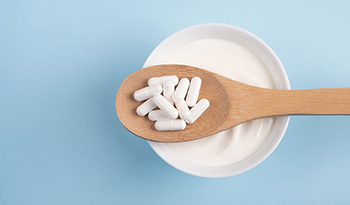How To Heal A Leaky Gut: Causes, Symptoms, + Treatment

A healthy gut acts as a protective barrier, filtering out harmful substances while allowing essential nutrients to be absorbed. However, factors such as poor diet, chronic stress, toxic exposure, and bacterial imbalances can weaken this barrier, leading to leaky gut syndrome.
What Is Leaky Gut Syndrome?
Leaky gut, also known as intestinal hyperpermeability, is a condition where the intestinal lining becomes compromised, allowing toxins, undigested food particles, and harmful bacteria to pass into the bloodstream. This can trigger widespread inflammation, particularly in the central nervous system, leading to mental health issues like depression, anxiety, brain fog, and even neurodegenerative diseases over time.
Leaky gut syndrome disrupts the gut’s barrier, which houses 70% of the immune system. This permeability allows harmful substances into the bloodstream, triggering immune confusion and increasing the risk of autoimmune diseases like hypothyroidism, lupus, and rheumatoid arthritis. Maintaining gut health is key to preventing immune dysfunction.
Common Leaky Gut Symptoms
Leaky gut syndrome can manifest in many ways, often mimicking other digestive disorders. Some key symptoms include:
Leaky Gut Digestive Symptoms:
- Chronic bloating
- Frequent diarrhea or constipation
- Acid reflux and indigestion
- Severe abdominal pain after meals
- Food intolerances and sensitivities
- Undigested food particles in stool
- Inflammatory bowel issues (IBD, Crohn’s, ulcerative colitis, IBS)
Leaky Gut Systemic Symptoms:
Leaky gut isn’t just a digestive issue—it affects the entire body. Not everyone with a leaky gut experiences digestive symptoms, as the condition can trigger widespread inflammation, impacting the brain, skin, immune system, and joints. Some common non-digestive symptoms include:
- Brain fog, memory issues, and poor concentration
- Frequent headaches and migraines
- Anxiety, depression, and mood swings
- Chronic fatigue and poor sleep quality
- Joint pain and muscle stiffness
- Hormonal imbalances and thyroid dysfunction
- Unexplained weight gain or difficulty losing weight
- Weakened immune system and frequent infections
- Autoimmune disorders (rheumatoid arthritis, lupus, Hashimoto’s, etc.)
Leaky Gut Skin and Allergy-Related Symptoms:
- Eczema, psoriasis, rosacea, and acne
- Chronic sinus congestion and seasonal allergies
- Asthma and respiratory issues
- Hives and unexplained rashes
Many people with leaky gut mistake their symptoms for IBS or food allergies, but the root cause often lies in the compromised gut lining.
Leaky Gut Causes: What Damages the Gut Lining?
Several factors contribute to increased intestinal permeability, leading to leaky gut syndrome. The most common root causes include:
Dietary and Lifestyle Triggers:
- Gluten triggers zonulin release, increasing gut permeability. This can confuse the immune system, leading it to attack the body's own tissues. For example, gluten’s similarity to thyroid cells may contribute to autoimmune thyroid inflammation.
- Refined sugars and processed foods – These feed harmful bacteria, promoting gut dysbiosis.
- Food Sensitivities: Food allergies can be genetic or acquired. Consuming unidentified trigger foods, such as gluten or lactose, can irritate the gut and increase its permeability. Dairy products, especially commercial milk, are common culprits that may contribute to inflammation.
- Seed oils and trans fats – Found in processed foods, they fuel chronic inflammation.
- Excess alcohol and caffeine – These can weaken the gut lining over time.
Medical and Environmental Triggers:
- Chronic stress – Suppresses immune function and weakens the intestinal lining.
- Overuse of antibiotics – Disrupts gut microbiome balance by killing beneficial bacteria.
- Acid blockers (PPIs) and NSAIDs (ibuprofen, aspirin, etc.) – Damage gut lining when used long-term.
- Heavy metal toxicity – Exposure to lead, mercury, and fluoride can impair gut function.
- Hormonal imbalances – Synthetic hormones and endocrine disruptors affect gut health.
- Pathogenic infections – H. pylori, parasites, candida overgrowth, and SIBO can all contribute to gut permeability.
- Vitamin and mineral deficiencies – Low vitamin D, C, E, zinc, and omega-3 fatty acids weaken the gut barrier.
How To Test For Leaky Gut
While there's no single gold standard test, several leaky gut tests can help in the diagnosis of this condition:
Tests for Leaky Gut:
- Food Sensitivity Test (IgG Panel) – Identifies hidden food intolerances.
- Stool Test – Detects bad bacteria (like Salmonella and E. Coli), parasites, and undigested food particles.
- Lactulose-Mannitol Test.
- Heavy Metal Toxicity Test – Identifies toxic buildup contributing to gut damage.
Leaky Gut Treatment
How to Heal Leaky Gut in 2 Weeks
The key to healing a leaky gut is removing triggers, restoring gut balance, and rebuilding the gut lining. Follow this four-phase healing approach:
Phase 1: Remove Gut Irritants
- Eliminate inflammatory foods: Gluten, dairy, sugar, processed foods, and seed oils.
- Avoid long-term use of antibiotics, NSAIDs, and acid blockers whenever possible.
- Limit alcohol, caffeine, and artificial sweeteners.
Phase 2: Support Digestion & Enzyme Production
- Take digestive enzymes and apple cider vinegar before meals.
- Consume bitter herbs (ginger, dandelion, arugula) to stimulate bile flow.
Phase 3: Repair the Gut Lining
- Take collagen peptides or bone broth daily.
- Supplement with L-glutamine, omega-3s, zinc, and vitamin D.
- Use anti-inflammatory, gut-repairing herbs: Curcumin, pomegranate-dried peels, slippery elm, and marshmallow root.
- Reduce stress: Practice deep breathing, meditation, and adaptogenic herbs like ashwagandha and rhodiola.
Phase 4: Rebuild Gut Microbiome
- Start Probiotics: Opt for a spore-based probiotic (Bacillus species), especially if managing SIBO.
Note: If probiotics cause bloating or discomfort, consider introducing them in the third week after beginning a gut-cleansing protocol, dietary adjustments, and digestive support.
- Add prebiotic fibers: A healthy gut relies on postbiotics, particularly butyrate, which is produced when beneficial bacteria ferment prebiotic fibers from foods like green bananas, broccoli, artichokes, oats, onions, arabic gum, pomegranate seeds, and leeks.
- Consume fermented foods: Kombucha, kimchi, miso, and sauerkraut.
Final Thoughts: Take Control of Your Gut Health
Healing a leaky gut requires a multi-faceted approach, but by removing triggers, restoring gut bacteria, and supporting gut lining repair, you can dramatically improve your health. If you're experiencing leaky gut symptoms, follow a targeted healing protocol. With the right diet, lifestyle changes, and supplementation, you can heal leaky gut in 2 weeks and reclaim your digestive and overall well-being.
This content is for educational purposes only and is not a substitute for medical advice. Always consult a healthcare professional before making health decisions or starting any new supplement, diet, or lifestyle program. Dietary supplements are not intended to diagnose, treat, cure, or prevent any disease, and all claims should align with U.S. Food and Drug Administration guidelines.
References:
- Cleveland Clinic. Leaky Gut Syndrome. Cleveland Clinic. Updated November 21, 2022. https://my.clevelandclinic.org/health/diseases/22724-leaky-gut-syndrome
- Aleman RS, Moncada M, Aryana K. Leaky Gut and the Ingredients That Help Treat It: A Review. Molecules. 2023;28(2):619. doi:10.3390/molecules28020619
- Camilleri M, Vella A. What to do about the leaky gut. Gut. 2021;71(2):424-435. doi:10.1136/gutjnl-2021-325428
- Christovich A, Luo XM. Gut Microbiota, Leaky Gut, and Autoimmune Diseases. Front Immunol. 2022;13:946248. doi:10.3389/fimmu.2022.946248
- Cook D. Is Bone Broth Healthy? Canadian Digestive Health Foundation. Updated November 30, 2022. http://cdhf.ca/en/is-bone-broth-healthy/
DISCLAIMER:This Wellness Hub does not intend to provide diagnosis...
















































































 Table of Contents
Table of Contents















